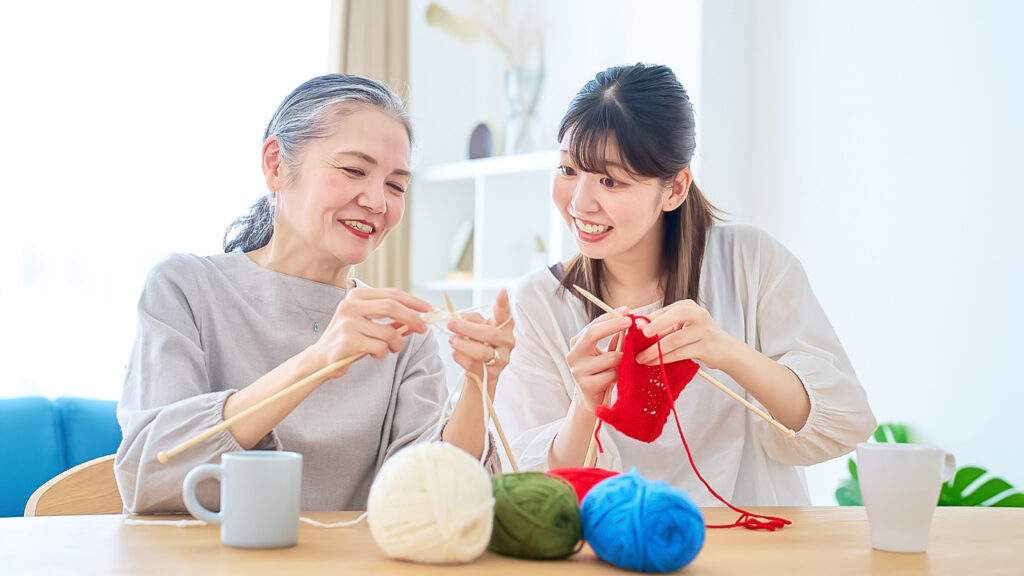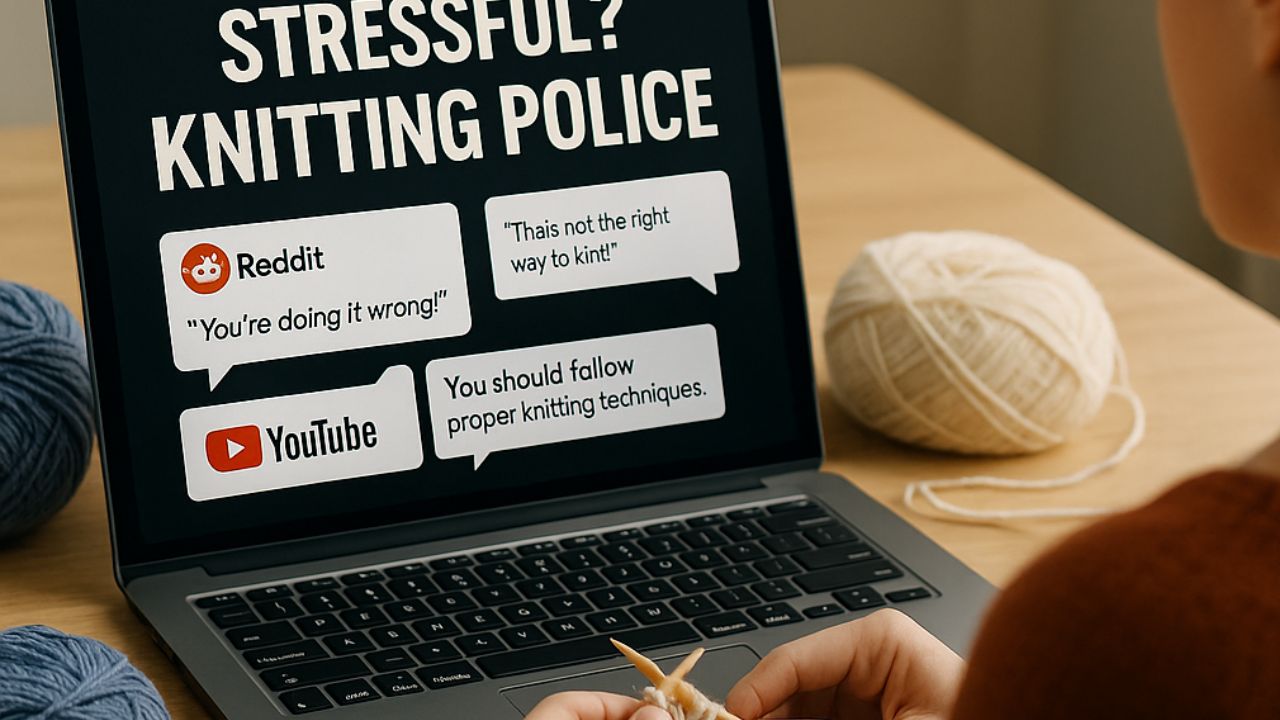“Knitting Police” has almost become a seasonal phrase every fall.
(Okay, maybe I made that up—but it does feel that way!)
The Knitting Police can be a real problem, not only for beginners but also for experienced knitters.
This article explains who they are, how to handle them, and how not to become one yourself.
“Mounting” and “Policing” in the Knitting World
We’ve seen many kinds of “police” in society:
the Mask Police during the pandemic,
the Kimono Police in Japan who judge how others wear traditional clothing,
and even people known in Japan as self-restraint police—citizens who try to control others’ behavior.
And yes, there are Knitting Police too.
I’ve been active in knitting groups and on social media for years. Luckily, I’ve never been attacked with harsh comments—most people are kind and encouraging.
That’s why I was shocked when I first saw the term “Knitting Police.”
These gatekeepers appear not only in real spaces like knitting cafés or classes, but also online.
You might encounter them on platforms such as Ravelry, Reddit (r/knitting, r/craftsnark), and YouTube channels often called “Knit-Tube,”
as well as in blog comments and social media DMs.
With the recent knitting boom, more people have started learning on their own and sharing their work online. Thanks to that, I’ve also seen more of these “officers” showing up.
Not every act of one-upmanship is policing, but the two often go hand in hand.
Why People Turn into Knitting Police
Everyone begins as a beginner.
No one starts knitting with a policing attitude.
So what causes that change?
It Comes from a Need for Validation
After observing several Yarn Snobs (sadly, more than one), I realized their behavior often comes from a need for validation.
They want to prove:
“I know more than you.”
Their “I’m better than you” tone is classic one-upmanship—a way to feel superior.
Just as people seek “likes” online, Knitting Police seek validation by convincing others that their method is the only correct one.
How to Deal with the Knitting Police

Beginners are easy targets, but even advanced knitters with unique styles (like combination knitting) can be criticized.
Anyone can become their next target.
So what can you do?
Step 1: Think “Poor Thing…”
Yes, their comments can hurt.
But in the long run, they’re the ones losing out.
Once someone believes only their way is right, they stop learning.
Knitting traditions differ by region and family, and there are countless techniques around the world.
Rejecting that variety means missing out on growth and creativity.
Step 2: Practical Ways to Respond
If someone says,
stay calm and ask:
“Oh, I see. Why do you do it that way?”
If their reason makes sense, learn from it.
If not, smile and move on.
(Vague reasons like “That’s how my teacher said” or “That’s just normal” aren’t solid explanations.)
Avoid arguing—it usually just fuels more drama.
And remember: a strict tone doesn’t always mean policing.
Some people really want to help.
Listen once, and if it doesn’t feel right, simply keep your distance.
Knitting shouldn’t cause stress.
Could You Be Acting Like the Knitting Police?
So far, we’ve talked about how to handle them.
But it’s also worth asking yourself:
Am I acting like one?
Even if someone’s method seems “wrong,” don’t correct them unless they ask.
If you want to share advice, use gentle phrases like:
“If you plan to do more later, this method could help.”
We’re now connected with knitters worldwide.
Even beginners learn quickly through online tutorials and global communities.
People who force their way on others tend to lose friends—and joy.
Instead, try thinking:
That open attitude helps you grow too.
Final Thoughts
Knitting Police are born from a search for approval,
but you don’t need to fight them.
Listen once, take what’s useful, and let the rest go.
Most importantly, don’t become one yourself.
When we accept different techniques and learn from each other,
knitting becomes truly free, creative, and fun again.
A Little Personal Note
In Japan, we call them Knitting Police.
But if you think about it, real police officers are supposed to protect the peace, right?
So honestly, calling them “police” feels unfair to actual officers.
Personally, I’d rather call them the Knitting Street Offenders. 😄


